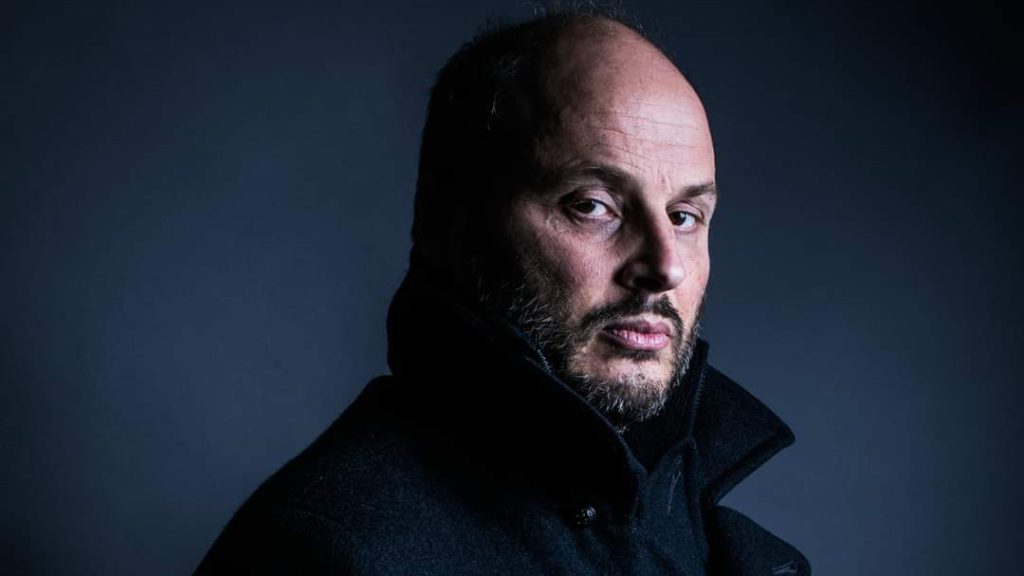
The Belgian director Fabrice Du Welz is bringing his new film Maldoror to Venice in the main Out of Competition section. The film tells the story of a crime that took place in his country thirty years ago.
What motivated you to make a film about this crime story that shook your country?
When the scandal broke out, in the mid-90s, I was twenty years old and I was naïve enough to assume that the adult world was a safe, well-organized place. Like most people of my generation, I was overwhelmed by an apocalyptic case, mixed with information being withheld, absurd, preposterous, mediocre implications, and carelessness. We Belgians couldn’t shake off this case for a long time – it was a cesspool in which Belgian citizens were thrown, witnessing, appalled, how helpless the parents of the little victims were in the face of the flaws and the absurdity of the justice system. We found out later on that the investigation had been bogged down by police rivalries that triggered many dysfunctions and irreparable damage. In Belgium, like anywhere else in the world, we all wondered – how did we get there? In the back of my mind, I’d always thought that I’d like to make a film about this tragedy. Because the facts are particularly gruesome, it was difficult for me to take ownership of the material, especially in Belgium where the scandal is still a highly sensitive issue. When I began talking about making a film ‘inspired’ by the Dutroux scandal, I had to put up with a lot of hostility. I had to find the right angle, the right lens, the right distance, without ever hurting the victims. Most importantly, I realized that it was key to set the story in Charleroi where the people are still affected by the scandal. It’s an industrial city, which used to be very affluent back in the 1800s and which has since been hit hard by social and economic decline. As a Brussels resident myself, coming from an upper-middle class family, I had no idea, as I was scouting locations in Charleroi, that the city was very much a character in its own right. It was key to approach working-class people living there and people with Sicilian descent that worked in the mines with the utmost dignity.

A deep dive into the traumas of Belgium’s recent history, starting with the horrifying case of the “Monster of Marcinelle” that shocked the country in the 1990s. Paul Chartier, a young recruit at a small police station, becomes involved in Operation Maldoror,...
The film’s pace is very fast, yet it maintains an intimate focus on the characters. How did you strike the right balance in the structure of the work?
I approached the project like a pared-down cross-section of a sprawling scandal. I felt like moving the narrative toward fiction – all the way to uchronia, to a fantasized justice system whose many flaws kept us from having any justice at all. Very quickly, I felt like addressing the scandal through the crime genre, like Yves Boisset’s La Femme flic. I wanted to reconnect with 1970s French noir movies whose leading auteurs were Alain Corneau and Yves Boisset. But as I watched Tarantino’s Once Upon a Time… in Hollywood, I had an epiphany, realizing that I could make an actual cinematic piece just as I gave back some dignity to those whose honor had been trampled. Because my main concern was to make as entertaining a movie as possible while being character-driven. This film is also a departure for me because of its evocative resonance and universal ambition. So, I really felt like pushing toward fiction and the challenge was to come up with something new.
Cinema has explored serial killers many times. Was there a film from the past that served as a model or inspiration for Maldoror?
I wanted the film to feel extremely realistic and the first part was shot on location to restrain my natural inclination to go for eccentricity or the horror tale genre. Once again, I was determined to make a crime thriller much in the vein of 1970s French films, but also of Sidney Lumet, with his realistic approach, and naturally of William Friedkin, a filmmaker who’s had a special influence on me – his documentary-like approach, from The French Connection to The Exorcist, has helped him make character-driven movies that also explore the metaphysical evil that plagues society. The audience should first buy into the furniture and the production design so that they can later be one with Paul and gradually embrace his own mental drift.